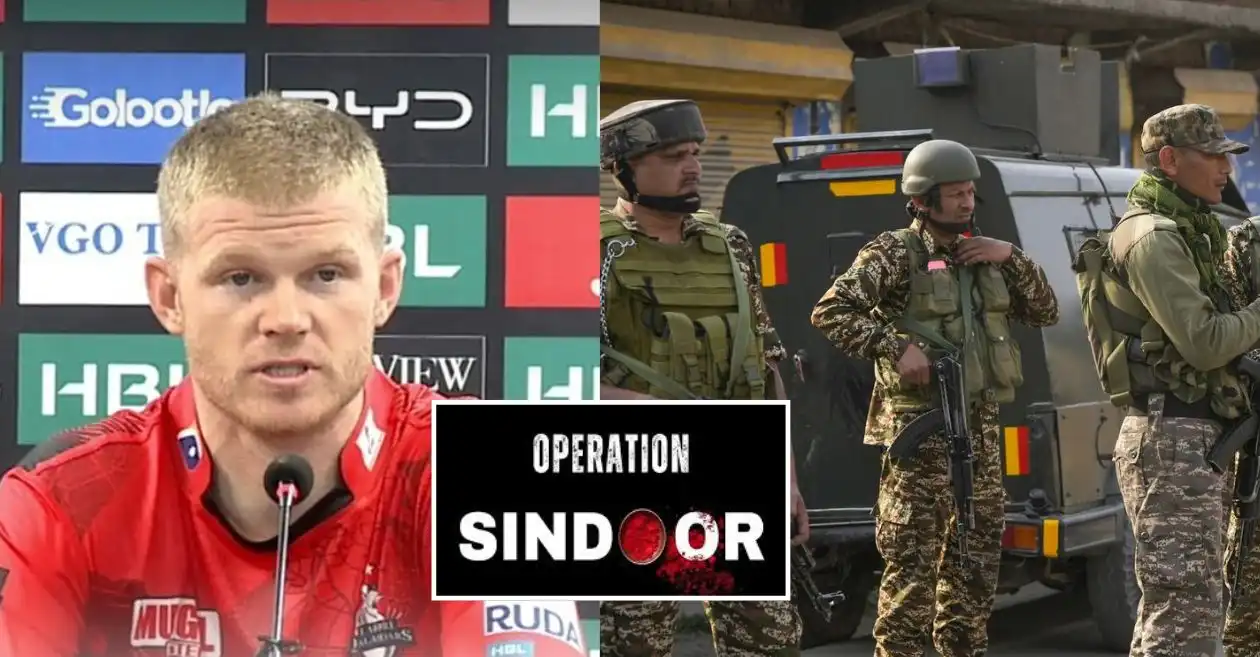On April 22, 2025, the serene Baisaran Valley near Pahalgam in Jammu and Kashmir became the site of a horrific terrorist attack. Five heavily armed militants targeted a group of tourists, primarily Hindus, resulting in the deaths of 28 civilians and injuries to 20 others. Eyewitness accounts revealed that the assailants singled out individuals based on their religion, forcing them to recite Islamic verses to determine their faith before executing them. This brutal act, considered the deadliest on civilians in India since the 2008 Mumbai attacks, sent shockwaves across the nation and the international community.
The Resistance Front (TRF), believed to be an offshoot of Pakistan-based Lashkar-e-Taiba, initially claimed responsibility but later retracted. The Indian government, attributing the attack to cross-border terrorism, vowed a decisive response.
Operation Sindoor: A Calculated Military Response
In retaliation, on May 7, 2025, India launched “Operation Sindoor,” a series of precision air and missile strikes targeting nine locations in Pakistan and Pakistan-administered Kashmir. The operation aimed to dismantle terrorist infrastructure linked to Lashkar-e-Taiba and Jaish-e-Mohammed. Key targets included areas in Muridke and Bahawalpur, known for housing militant group facilities.
India reported the elimination of approximately 70 terrorists within 24 hours, emphasizing that the strikes were focused on terrorist camps and logistical hubs, avoiding civilian and military installations. The operation, overseen by Indian Prime Minister Narendra Modi, was described as a necessary and measured response to the Pahalgam attack.
Escalation and International Reactions
Pakistan condemned the strikes as an “act of war,” reporting 26 civilian deaths and 46 injuries, including children. The Pakistani military claimed to have shot down five Indian aircraft, a claim India disputed. In retaliation, Pakistan conducted its own strikes, leading to further casualties on both sides.
The international community expressed deep concern over the escalating tensions between the nuclear-armed neighbors. The United Nations, United States, and China urged both countries to exercise restraint and engage in dialogue to prevent further escalation. The situation led to reciprocal diplomatic sanctions, including the suspension of the Indus Waters Treaty by India and the Simla Agreement by Pakistan, closure of borders, and expulsion of diplomats.
Cricket Amidst Conflict: Sam Billings’ Call for Peace
Amidst the geopolitical turmoil, the world of cricket found itself inadvertently entangled in the crisis. English cricketer Sam Billings, playing for Lahore Qalandars in the Pakistan Super League (PSL), took to social media to express his concerns. He tweeted:
“Praying India and Pakistan situation deescalates asap.”
Billings’ message, though brief, resonated widely, highlighting the pervasive impact of the conflict beyond political and military spheres. His position was particularly delicate, given his recent comments favoring the Indian Premier League (IPL) over the PSL in terms of quality and glamour, which had already stirred debates among cricket fans.
Sam Billings: A Global Cricketing Journey
Sam Billings, known for his versatility and leadership, has carved a niche in T20 cricket globally. With 360 matches and nearly 7,000 runs, including a century and 35 half-centuries, his career spans major leagues like the IPL, BBL, PSL, and The Hundred. His experiences across continents have not only honed his cricketing skills but also provided him with a broader perspective on global issues, as reflected in his recent call for peace.
The Intersection of Sports and Geopolitics
Billings’ tweet underscores the complex interplay between sports and geopolitics. Cricket, often seen as a unifying force in the subcontinent, finds itself at the crossroads during times of conflict. Players, especially foreign nationals participating in leagues across borders, navigate a challenging landscape where their professional commitments intersect with sensitive political climates.
The situation also raises questions about the safety and well-being of international players in conflict zones. While there have been no reports of threats to foreign cricketers in Pakistan, the escalating tensions necessitate vigilance and contingency planning by cricket boards and franchises.
Looking Ahead: The Role of Sports in Peacebuilding
As India and Pakistan grapple with the aftermath of Operation Sindoor and the broader implications of their strained relations, the role of sports, particularly cricket, in peacebuilding becomes more pertinent. Initiatives fostering people-to-people contact, cultural exchanges, and sporting events can serve as bridges in times of political discord.
Cricketers like Sam Billings, with their global appeal and platforms, can play a pivotal role in advocating for peace and mutual understanding. Their voices, while primarily rooted in sports, have the potential to transcend boundaries and contribute to broader dialogues on harmony and coexistence.
Operation Sindoor marks a significant chapter in the ongoing India-Pakistan conflict, reflecting the complexities of responding to terrorism while navigating international diplomacy. The reverberations of such events extend beyond political corridors, touching various facets of society, including sports.
Sam Billings’ heartfelt plea for de-escalation amidst his professional commitments in Pakistan exemplifies the interconnectedness of our global community. As the world watches the developments unfold, the hope remains that dialogue and diplomacy will prevail, ensuring peace and stability in the region.
Please check for information on the best betting sites in India – https://selectory.org/best-betting-sites/















